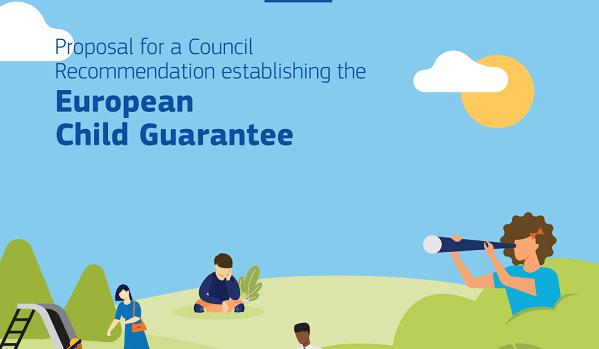On Wednesday 24 March, the European Commission has published its proposal for a Council recommendation on a European Child Guarantee, a financial instrument outlining five objectives for children in poverty including free healthcare, free education, free childcare, decent housing and adequate nutrition. The proposal is launched as part of a European integrated plan to combat child poverty.
Strongly urged by the European Parliament, that ensured the inclusion of this instrument in the EU budget through a specific earmarking in the European Social Fund Plus (ESF+), the Child Guarantee has been designed following a comprehensive feasibility study, that focused on four target groups: children with disabilities, children in alternative care, children with a migrant background (incl. refugee children) and children living in precarious family situations.
For each one of these groups, the study reveals multiple obstacles in accessing opportunities and services. The research illustrates with detailed statistics, how the migration status of parents can disproportionally affect the social inclusion of their children.
Besides the ESF+, other EU funds, such as the European Regional Development Fund (ERDF) can contribute to future-proof investments in social infrastructure, equipment and access to quality and mainstream services, as well as with cooperation projects in border regions. Finally, member states will be able to use their allocations from the Recovery and Resilience Facility to implement more structural measures to reduce child poverty.
Depending on their national peculiarity, member states will have to identify which groups of children are more likely to experience specific disadvantages, and set up policy solutions accordingly – with the support of EU funds. The document offers a detailed mechanism for monitoring and evaluating member states’ progress in tackling child poverty, including the involvement of the European Semester economic and employment coordination process.
An EU cohesion policy adapted to react socio-economic consequences of the pandemic with ad-hoc initiatives as the React-EU programme is in place, but the preparation of operational programmes for the structural funds in the new Multiannual Financial Framework (MFF 2021 – 2027), have not been finalised yet. This delay gives the opportunity to Member States to programme in time their funds, and to align them with the Child Guarantee Action Plans.
In member states where migrant and refugee children are facing a particular risk of experiencing disadvantages, such an instrument could represent a targeted support for them and for families, allowing children to reach their full potential and “break the cycle of disadvantage”, as promoted in the Commission Recommendation on Investing in Children of 2013.
This article appeared in the ECRE Weekly Bulletin. You can subscribe to the Weekly Bulletin here.

